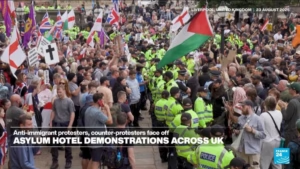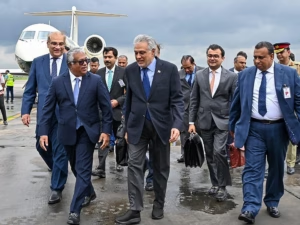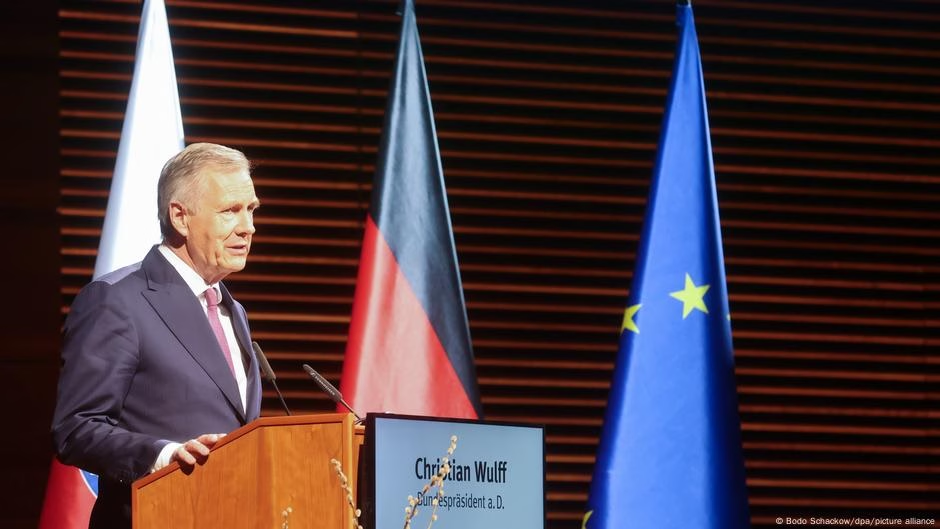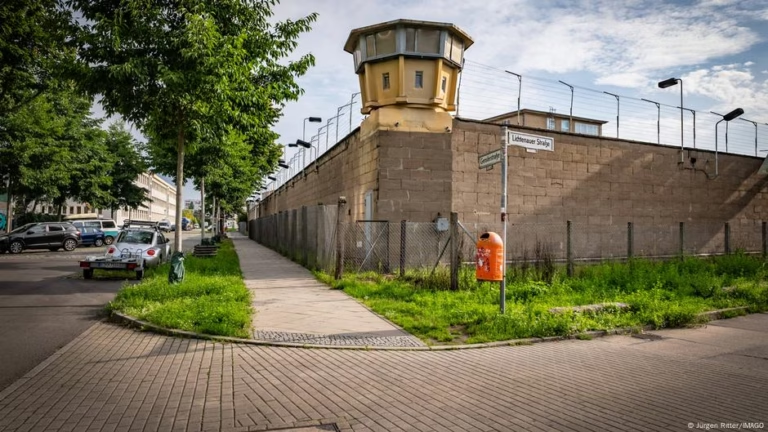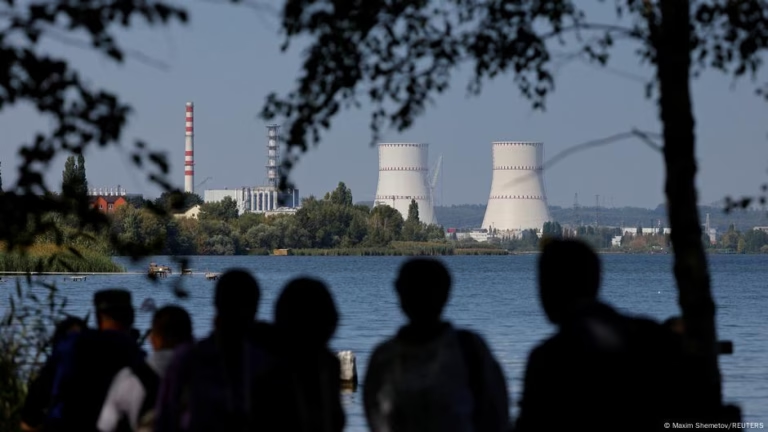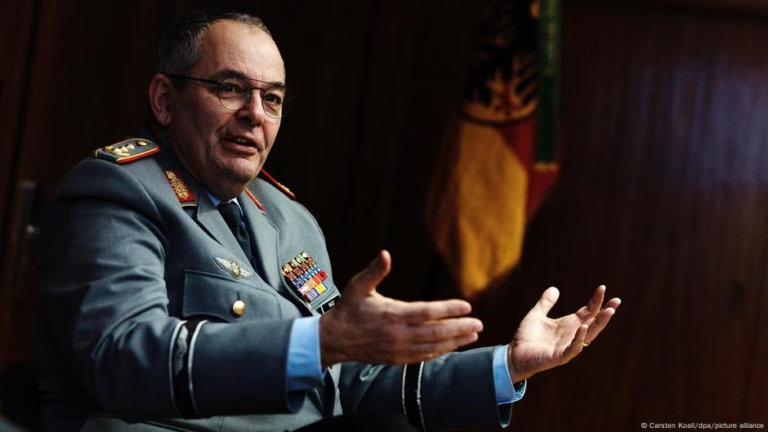The Buchenwald camp, which was a Nazi site, was liberated by US soldiers on April 11, 1945.
Wulff Warns Against the Dangers of Extremism
The commemoration began with speeches by Mario Voigt, the premier of Thuringia, and Christian Wulff, a former German president.
Wulff issued a warning about the dangers of “brutalization and radicalization” linked to the rise of right-wing political forces worldwide.
Wulff stated that the comparison between the era before World War II and the current global shift to the right makes him uneasy. However, he also expressed the ability to understand how such events could have occurred in the past.
“Evil must never be allowed to prevail again,” he emphasized.
Wulff also addressed the far-right Alternative for Germany (AfD) party, stating that their ideology creates a breeding ground for feelings of discomfort and actual danger among Germans.
Holocaust Survivors Attend Ceremony
Wreaths were placed at a memorial in the camp’s former roll-call square during the afternoon as part of the ceremony.
The Buchenwald and Mittelbau-Dora Memorials Foundation reported that the ceremony was attended by up to 10 survivors from Belarus, France, Germany, Israel, Romania, and Switzerland.
Reflecting on the Future of Holocaust Remembrance
The first prisoners, including Jews, Roma, homosexuals, and Soviet prisoners of war, arrived in Buchenwald in the summer of 1937. By 1945, around 340,000 people had been sent to the camp, with approximately 56,000 people murdered in Buchenwald and 20,000 in Mittelbau-Dora.
Mittelbau-Dora gained notoriety as a site where prisoners were forced to participate in the construction of Germany’s V1 and V2 rockets.
80 years on, there are fewer survivors to serve as eyewitnesses to the lessons of the past. In 2005, around 300 survivors attended the 60th anniversary ceremony, but this year, the number will be less than a dozen.
Against the backdrop of a rise in far-right sentiment, including the growth of the AfD in Germany and across the Western world, concerns about the future of Holocaust remembrance have grown.
The AfD has shown hostility towards Germany’s so-called “remembrance culture,” downplaying the country’s Nazi past and encouraging society to move on and forget.
“The certainties of the post-war decades… have become fragile,” stated Jens-Christian Wagner, historian and head of the Buchenwald and Mittelbau-Dora Memorials Foundation. “Liberal democracies are caught in the middle and, in Germany, the AfD is notoriously spreading historical revisionism,” he added.
Concerns Over the Rise of the AfD
Attending the ceremony was Buchenwald survivor Albrecht Weinberg, who, at 100 years old, expressed concern about the AfD’s rise. Weinberg, who returned to Germany in 2012 from the US, has been an educator about the Holocaust and believes young people should not hesitate to speak up when something is wrong.
Some content and formatting has been altered to enhance readability and space constraints.
Edited by Jeniffer Camino Gonzalez, Wesley Dockery
